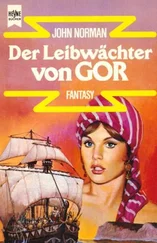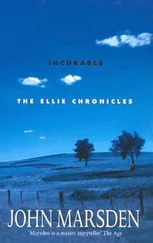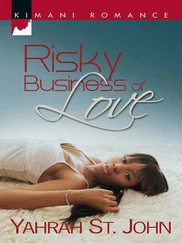John Marsden - While I live
Здесь есть возможность читать онлайн «John Marsden - While I live» весь текст электронной книги совершенно бесплатно (целиком полную версию без сокращений). В некоторых случаях можно слушать аудио, скачать через торрент в формате fb2 и присутствует краткое содержание. Жанр: Фантастика и фэнтези, на английском языке. Описание произведения, (предисловие) а так же отзывы посетителей доступны на портале библиотеки ЛибКат.
- Название:While I live
- Автор:
- Жанр:
- Год:неизвестен
- ISBN:нет данных
- Рейтинг книги:4 / 5. Голосов: 1
-
Избранное:Добавить в избранное
- Отзывы:
-
Ваша оценка:
- 80
- 1
- 2
- 3
- 4
- 5
While I live: краткое содержание, описание и аннотация
Предлагаем к чтению аннотацию, описание, краткое содержание или предисловие (зависит от того, что написал сам автор книги «While I live»). Если вы не нашли необходимую информацию о книге — напишите в комментариях, мы постараемся отыскать её.
While I live — читать онлайн бесплатно полную книгу (весь текст) целиком
Ниже представлен текст книги, разбитый по страницам. Система сохранения места последней прочитанной страницы, позволяет с удобством читать онлайн бесплатно книгу «While I live», без необходимости каждый раз заново искать на чём Вы остановились. Поставьте закладку, и сможете в любой момент перейти на страницу, на которой закончили чтение.
Интервал:
Закладка:
I cut across the gully to get there and suddenly almost tripped over a body. It was lying face down. It wasn’t in uniform but I knew where he was from. Blood still oozed from under him.
I jumped over it and ran up to the shed. Two other bodies lay in the long grass. I felt my throat block like two hands were closing around it to strangle me. Dad had gone down fighting. He was in the shed, his body in pieces, like Mum’s. There was blood everywhere. Another body was in there with him, almost lying on top of him. It was hard to tell what had happened but I think somehow Dad had got one of their rifles off them and done what damage he could before they killed him.
CHAPTER 2
My family had been cockies since before The Beatles even, back in horse and plough days. We had always been into cattle and sheep, but when the war ended and twenty million people had to be crammed into an area that used to hold six million, we lost a lot of land. My friend Fi’s mother was appointed to do the redistribution for the Wirrawee area and we didn’t come out of it all that well. That’s my opinion anyway.
Dad decided to break with tradition and go into turkeys and geese. At first I thought it was a good idea but it turned out badly. No sooner had we started than the turkeys were hit by blackhead disease and we lost three-quarters of the poor buggers.
Dad was convinced the disease had come from the other side of the border but who knows? The truth is it happened so quickly that I did wonder if the turkeys were infected before we got them. It was hard to say. Before the war the government had been really strict on agricultural stuff, and being an island made that easier. Anyone who brought in nasty diseases like fire blight was smeared with mustard and fed to sharks. But when the war ended, it suddenly became a whole different ball game, because here we were on one side of the border being strict about quarantine and there they were on the other side not giving a stuff.
As we cremated a couple of thousand dead birds on a huge bonfire, an event that put me off cooked chicken for a long time — and I’ve never been keen on raw chicken — Dad realised that turkeys and geese weren’t his scene. I suppose the blackhead disease almost did us a good turn in that way.
Equally it was obvious that three of the four families who’d gotten large bits of our farm in the land redistribution weren’t going to make a go of it. One lot had never been on the land before, another lot were lazy, and the third were on the grog. So Dad sat down with them and did a bit of negotiating. I was proud of him, because negotiating didn’t come naturally to him. But after nearly a week of bargaining he’d leased back three-quarters of the land that we’d lost, and even though I didn’t like the fact that we had to pay these people a lot of money just to get our own property back, I started to hope that maybe we could return to the way it had been in the old days.
The other good thing was that we got rid of three of the families, because we’d had to give them housing. One of the rules with the new arrangements was that we’d had to provide their accommodation while they tried to get houses built and launch their farming operations.
The ones left were the Sandersons, who were nice. They were quite a young couple with two kids. Unlike the others they’d already built their own house, in a paddock called Hillside, and moved into it about a fortnight earlier. Pretty fast going, considering how hard it was to get building materials, let alone stuff like electrical cables and poly pipe.
But Mrs Mackenzie, Corrie’s mum, was still with us. No wonder it had seemed like a small township around my place for a while there. Corrie was my friend, who was killed in the war. Well, one of my friends who was killed. Mrs Mackenzie was nice, but she was pretty depressed most of the time. No surprises there. I mean, she’d lost her only daughter, and then her husband shot through, and for someone who’d put all her energy and time and love into her husband and her daughter, suddenly Mrs Mackenzie had nothing to do, and nowhere to go. Except to our place.
At least my mother had got most of her old spirit back. The war had knocked her around pretty badly. One of the invisible victims. I’ve never been quite sure exactly what a nervous breakdown is, but I think that’s what my mother had. These days she was still thin, and she’d aged a lot, but I knew she was back to normal when she charged into my room one Sunday morning and told me to take down a poster that said ‘For people with dyslexia, UFKC OFF’, and to take the pile of washing behind my door to the laundry and put it through the machine (the pile wasn’t as big as Uluru, she definitely got that wrong), and to clean up my room in the next sixty minutes or I’d be grounded till Christmas.
It was a relief in a way, because for a while there I’d been feeling like I was the mother and she was the daughter.
So much had happened, so many changes to our life. But things had started to settle down a bit. God they needed to. In the last month or so I’d been getting to school every day, and even doing a bit of homework. A lot of homework some nights. It felt weird doing assignments on ancient Egypt and immunology and the poems of Philip Hodgins after what we’d been through. But I quite liked it. It gave me, I don’t know, detachment.
Dad had taken delivery of forty scrawny cows who were meant to be in calf, and twenty skinny steers. Stock was hard to come by but he was hopeful of getting a couple of hundred wethers and ewes from a mate near Stratton. It was going to be a long hard haul to build things up again, to get back to the way it had been for so many years, but I think we felt like we were heading in the right direction at last.
For all that, there was still plenty of stuff that kept everyone on edge. In particular, the stories about border raids. It was hard to know exactly what was going on, because we only had one newspaper and one local television station. Nearly all of our TV now came from America.
Some people reckoned a lot of the local news was censored. The government didn’t want us to get too depressed, or scared. Mr Purvis, at the Mitre 10 in Wirrawee, told me he’d written thirty-eight letters to the paper since the war ended and not one of them had been published, and that proved there was censorship, but I thought it was more likely that he wrote crap letters.
There were certainly heaps of rumours. Wirrawee these days was a regular gossip factory, spewing out stories the way the Stratton Smallgoods Factory spewed out sausages. But border raids were one of the biggest talking points, almost from the day the war ended. Some of them were reported in the news but there were plenty of people to tell you that the media only mentioned one in every ten. It was impossible for us, living so far out of town, busy trying to rebuild the farm, to know what was really happening.
It seemed pretty clear though that there were people from both sides sneaking across the border for all kinds of illegal reasons. I would say that from our side people were doing it for thrills, to steal stuff, to get revenge for the war, and looking for unreturned prisoners who were rumoured to be hidden in hard-to-reach places.
From their side, I’d say they were doing it for thrills, to steal stuff, to get revenge for the war. And some of them were pissed off about the peace settlement, and thought they should have kept the whole country.
Come to think of it, maybe that’s another reason people from our side were going over the border. Maybe they thought we should have got the whole country back, so they decided to take it a little bit at a time. A lot of people on our side, Mr Purvis included, were sure that we should have got more land. They even said we’d ended the war too early, accepted peace terms that were one-sided. I don’t know about that. Seemed to me like neither side won this particular war, but the big New Zealand counterattack at the end got us the best terms we could have hoped for. Without that we’d have ended up with Flinders Island. Twenty million people on Flinders Island. Could have been tricky. Anyway, what would I know?
Читать дальшеИнтервал:
Закладка:
Похожие книги на «While I live»
Представляем Вашему вниманию похожие книги на «While I live» списком для выбора. Мы отобрали схожую по названию и смыслу литературу в надежде предоставить читателям больше вариантов отыскать новые, интересные, ещё непрочитанные произведения.
Обсуждение, отзывы о книге «While I live» и просто собственные мнения читателей. Оставьте ваши комментарии, напишите, что Вы думаете о произведении, его смысле или главных героях. Укажите что конкретно понравилось, а что нет, и почему Вы так считаете.












![William Frith - John Leech, His Life and Work, Vol. 2 [of 2]](/books/748201/william-frith-john-leech-his-life-and-work-vol-thumb.webp)